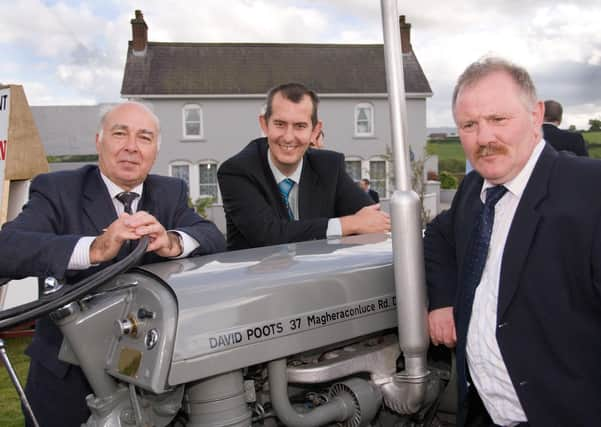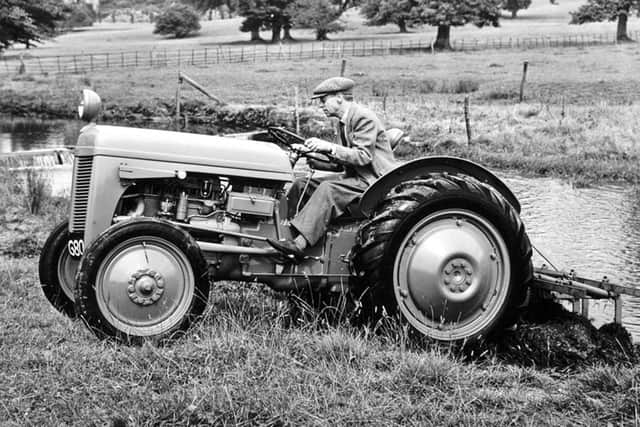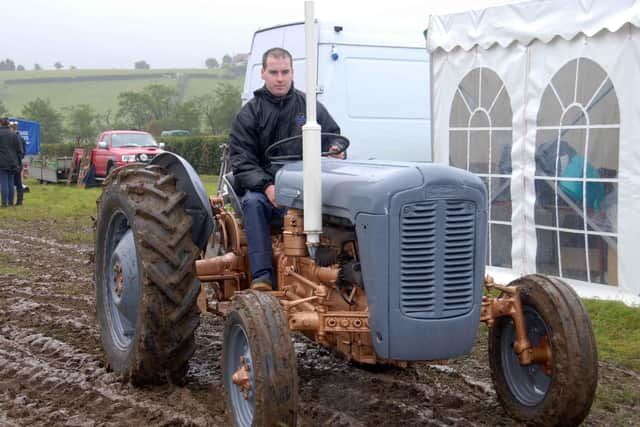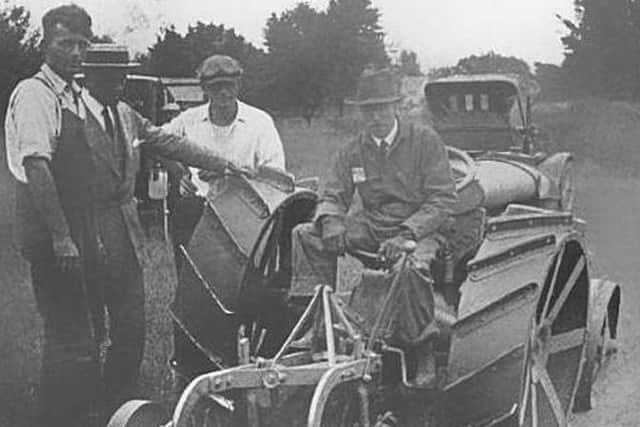BYGONE DAYS: Inventor reflects on the future of farming in province


In April 1927 he spoke to newspapers in Northern Ireland about his plans to improve the lot of small farmers in the country. He had been, it was noted, exploring ways in which he could substitute a “cheap and effective motor-power” for the “wasteful and often ineffective horse-power”, this he believed would be the “future salvation of the small farmer”.
Mr Ferguson had developed a new plough, in conjunction with Fordson tractor, which he claimed would conquered all the difficulties faced by the smaller farmer both here in Northern Ireland and in the United States of America.
Advertisement
Advertisement
According to a newspaper report published this week in April 1927: “The Ferguson plough is attached to the tractor, but easily detachable from it, and the whole outfit is as handy and compact and easily manoeuvred as a modern two-seater.”


Farmers in Co Down who had seen the plough work were “more than impressed with its merits”.
A newspaper noted: “No field seems too uneven, too steep, too stony for it to deal with.”
Mr Ferguson was also a visionary and was happy to share his views on the future “power-farming” in Northern Ireland. Indeed one newspaper commented: “Mr Ferguson is infectiously enthusiastic in his belief in the future.”
Advertisement
Advertisement
He said: “Now that we have the right idea upon which to start the rest is a matter of development. That development may be slow, but it is certain. The plough is the basis of agriculture.”


Mr Ferguson continued: “People have bought tractors hitherto with the idea of easy ploughing. They were disappointed. The tractor was all right, but the two-unit idea of the combination was all wrong.
“I claim to have made the plough all right, and when the other implements needed for the major operations of farming are made equally right much of the labour problem on the small farm will be solved.
“Moreover, the horse may go. I firmly believe that in the course of a few years on such farms he will be a rarity. Horse labour on the farm is always costly, often ineffective. Especially is that the case with ploughing.
Advertisement
Advertisement
“Everybody knows how essential is good deep cultivation to ensure bumper crop. On some land the average pair of horses cannot pull the plough through a deep furrow. There is no such limitation with the effective tractor plough.


“One of the greatest advantages of all in motor ploughing is the opportunity which the superior speed in execution gives to the farmer to complete work of the kind in the most favourable weather and just at the right season.”
While Mr Ferguson emphasised the economic superiority of power over horse on the small farm, he had a reply for those who objected to change.
He responded: “Admitting that the farmer produces oats and hay while does not grow petrol, it ought to need no ghost to make him see that the market value to him of the oats and hay consumed by his horses would be greater than the price of the petrol consumed by his tractor in producing an equivalent to the horse power.
Advertisement
Advertisement
“As to the manure produced by the horse, there would be an equivalent in value in that produced by stall-fed cattle occupying the discarded horses’ quarters, apart altogether from the money profit of the cattle.
“As to horse breeding for profit, I believe that is a matter upon which the larger farmers will always specialise.
“But you do not find it carried on as a practice on the majority of the smaller farms. And it is on the small farm that power would be a tremendous economic saving.
“My view is that on the ordinary two-horse farm today the tractor will, before many years, be doing all the work now done by horses and will do it more expeditiously, more effectively, and more economically. The horse will survive simply in association with his recreative uses.”
Advertisement
Advertisement
Pressed on other farming implements that he was developing Mr Ferguson said: “Yes, I am hard at work upon some of them myself and am sanguine that other inventors will also recognise the principle and that manufacturers may recognise the need.
“These things will come, and meantime there is scarcely any minor operation that the tractor cannot perform.”
He concluded: “I had to go to America to get my plough on the market. Notwithstanding the powerful opposition of existing interests in connection with the old two-unit form of implements, it has been recognised there as big step in the right direction, and I am confident that north of Ireland farmers will recognise its value as soon as they have seen practical proof of its merits.”
A message from the Editor:
Thank you for reading this story on our website. While I have your attention, I also have an important request to make of you.
Advertisement
Advertisement
In order for us to continue to provide high quality and trusted local news on this free-to-read site, I am asking you to also please purchase a copy of our newspaper whenever you are able to do so.
Our journalists are highly trained and our content is independently regulated by IPSO to some of the most rigorous standards in the world. But being your eyes and ears comes at a price. So we need your support more than ever to buy our newspapers during this crisis.
With the coronavirus lockdown having a major impact on many of our local valued advertisers - and consequently the advertising that we receive - we are more reliant than ever on you helping us to provide you with news and information by buying a copy of our newspaper when you can safely.
You can also enjoy unlimited access to the best news from across Northern Ireland and the UK by subscribing to newsletter.co.uk.
Advertisement
Advertisement
With a digital subscription, you can read more than five articles, see fewer ads, enjoy faster load times, and get access to exclusive newsletters and content. Visit https://www.newsletter.co.uk/subscriptions now to sign up.
RUTH RODGERS, Editor